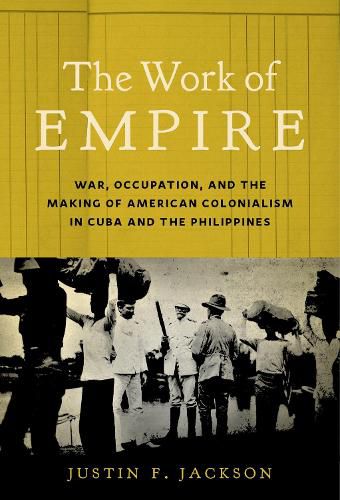Readings Newsletter
Become a Readings Member to make your shopping experience even easier.
Sign in or sign up for free!
You’re not far away from qualifying for FREE standard shipping within Australia
You’ve qualified for FREE standard shipping within Australia
The cart is loading…






In 1898, on the eve of the Spanish-American War, the US Army seemed minuscule and ill-equipped for global conflict, yet its soldiers defeated Spain and pacified nationalist insurgencies in Cuba and the Philippines over the next fifteen years. Despite its lack of experience in colonial administration, the army also ruled and transformed the daily lives of the 8 million people who inhabited these tropical islands.
How did the relatively small and inexperienced army succeed in managing the day-to-day operations in its new territories? The US military depended on tens of thousands of Cubans and Filipinos to fight its wars and do the work of civil government. Whether compelled to labor for free or voluntarily working for wages, Cubans and Filipinos, suspended between civilian and soldier status, enabled US foreign rule by interpreting, guiding, building, selling sex to, and performing numerous other labors for American troops. In The Work of Empire, Justin Jackson reveals how their work disrupted the islands' older political, economic, and cultural hierarchies in ways that endured in postwar and post-occupation "civilian" regimes. Jackson offers new ways to understand not only the rise of US military might but also how this power influenced a globalizing imperial world.
$9.00 standard shipping within Australia
FREE standard shipping within Australia for orders over $100.00
Express & International shipping calculated at checkout
In 1898, on the eve of the Spanish-American War, the US Army seemed minuscule and ill-equipped for global conflict, yet its soldiers defeated Spain and pacified nationalist insurgencies in Cuba and the Philippines over the next fifteen years. Despite its lack of experience in colonial administration, the army also ruled and transformed the daily lives of the 8 million people who inhabited these tropical islands.
How did the relatively small and inexperienced army succeed in managing the day-to-day operations in its new territories? The US military depended on tens of thousands of Cubans and Filipinos to fight its wars and do the work of civil government. Whether compelled to labor for free or voluntarily working for wages, Cubans and Filipinos, suspended between civilian and soldier status, enabled US foreign rule by interpreting, guiding, building, selling sex to, and performing numerous other labors for American troops. In The Work of Empire, Justin Jackson reveals how their work disrupted the islands' older political, economic, and cultural hierarchies in ways that endured in postwar and post-occupation "civilian" regimes. Jackson offers new ways to understand not only the rise of US military might but also how this power influenced a globalizing imperial world.